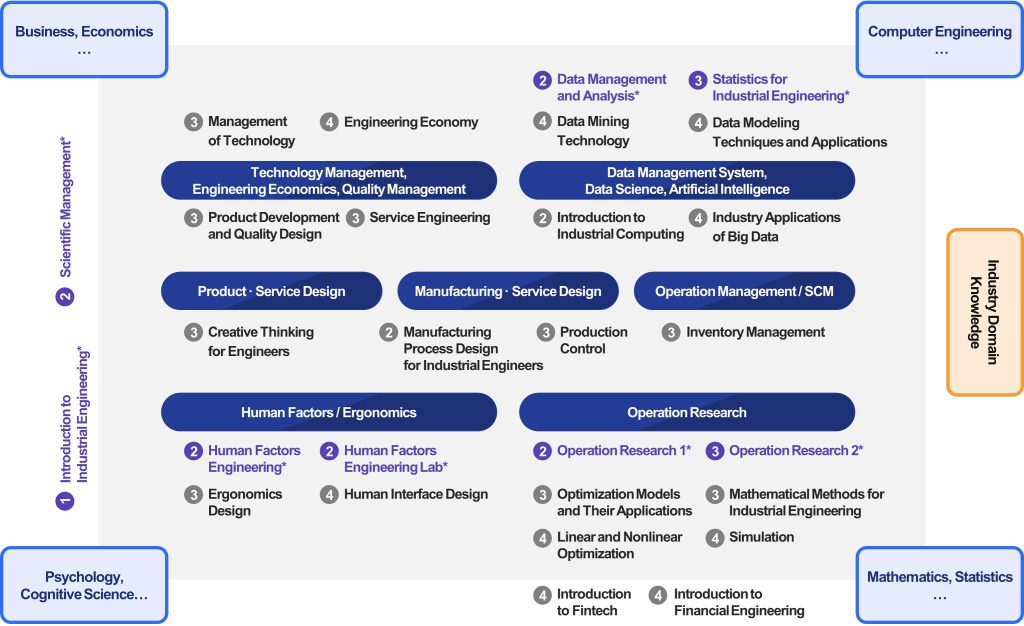Course Overview

Industrial engineering is a field of study that focuses on the analysis of systems that constitute industries. It draws on a range of disciplines to address the design, management and improvement of these systems. Unlike other engineering disciplines, which tend to focus on specific technologies for particular industries, industrial engineering emphasizes the design and optimization of entire industrial processes. From planning and design to development, production systems, distribution systems and operations, industrial engineering seeks to identify areas for improvement and ways to enhance productivity.
While individual industries may have differing processes in detail, the core business activities – planning, design, development, production, distribution and operations – are fundamentally similar across the board. The overarching processes taught in industrial engineering can be applied across all industry sectors, giving graduates the advantage of pursuing careers in a wide range of industries and research fields. In addition to the comprehensive understanding gained in industrial engineering, graduates can also draw on foundational knowledge of specific sectors, making them well-equipped to enter any industrial domain.
The key academic areas within industrial engineering include the following: "Operations Research," for instance, employs mathematical models to systematically evaluate the numerous factors involved in managing and operating systems. This enables the determination of the appropriate weight to be assigned to each factor. Ergonomics is the engineering discipline that studies human behavior and thought processes, with the goal of developing products or services that appeal to consumers. Another essential field in industrial engineering is data science, which involves organizing and extracting meaningful insights from large datasets to inform optimal decision-making. By integrating these diverse subjects, industrial engineers develop a comprehensive understanding of the industry, enabling them to effectively navigate and direct its operations.
Students pursuing a major in industrial engineering must develop the capacity to view objects and processes from multiple perspectives. Additionally, they should possess an interest in fields such as economics, culture, and the arts, as well as the ability to express their ideas in a logical manner. Industrial engineering is not about mastering a specific technology; rather, it is about modeling complex, underlying processes, explaining them to stakeholders, and learning how to effectively guide and direct these processes.

